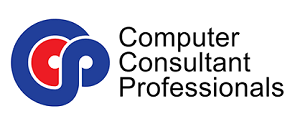In the modern business landscape, making informed decisions is no longer a luxury—it is a necessity. Companies need to understand consumer behavior, market trends, and competitive dynamics to develop effective strategies. Traditional research methods, while reliable, often require significant time, effort, and financial investment. As businesses strive to stay agile and responsive, the concept of a research marketplace has emerged as a revolutionary solution, providing faster, cost-effective, and more accessible market insights.
Historically, businesses relied heavily on in-house research teams or external agencies to gather data. This process involved designing surveys, recruiting participants, and analyzing results—steps that could take weeks or even months. Limited reach and the high cost of traditional research often constrained the quality and depth of insights. With markets evolving at an unprecedented pace, organizations needed a solution that could deliver timely and actionable data without the heavy logistical burden.
A research marketplace addresses these challenges by connecting companies with a global pool of participants and research providers through a digital platform. Businesses can launch surveys, target specific demographics, and gather real-time insights quickly and efficiently. The platform streamlines every stage of the research process, from recruitment to reporting, allowing companies to focus on analyzing data and implementing strategies rather than managing the mechanics of research.
One major advantage of using a research marketplace is the diversity of participants available. Companies can reach a wide array of consumers across different regions, industries, and demographics. This diversity ensures that research findings are representative and reliable, reducing biases that may occur with smaller or less varied sample groups. By accessing this broad participant base, organizations can gain deeper insights into consumer preferences, purchase behavior, and market expectations.
Additionally, research marketplaces provide scalability that traditional methods cannot match. Whether a company requires a small survey for product testing or a large-scale study for market expansion, the platform can accommodate projects of any size. Organizations can adjust survey scope, participant criteria, and data collection methods according to their specific research needs. This flexibility enables businesses to manage budgets effectively while still obtaining high-quality data.
Technology integration is another key benefit. Many research marketplaces include advanced analytics tools, dashboards, and reporting features that allow companies to interpret complex data easily. Real-time visualization, trend analysis, and automated reporting help transform raw survey data into actionable insights. This tech-driven approach accelerates decision-making and reduces the likelihood of errors that can occur with manual data analysis.
Speed is critical in today’s fast-moving markets, and research marketplaces excel in this area. Companies can launch surveys and collect responses in a fraction of the time it would take using traditional methods. Rapid access to consumer feedback enables businesses to pivot strategies, refine marketing campaigns, and optimize product offerings quickly. In a competitive environment, this ability to act on insights immediately can make the difference between success and missed opportunity.
Accessibility is another transformative feature. Small and medium-sized enterprises (SMEs) often face budget constraints that limit their ability to conduct extensive research. Research marketplaces democratize access to high-quality insights, leveling the playing field between smaller businesses and large corporations. This broader access fosters innovation, allowing companies of all sizes to make informed decisions and compete effectively in the market.
Data security and ethical compliance are also top priorities for research marketplaces. Reputable platforms follow strict protocols to protect participant information and comply with international data protection regulations. Ethical practices ensure that respondents’ privacy is respected, building trust and credibility in the research process. Businesses can confidently collect and use data without risking violations or reputational damage.
In conclusion, the rise of the research marketplace is transforming the way companies approach market insights. By offering accessibility, speed, scalability, and advanced analytics, these platforms empower businesses to make smarter, faster, and more data-driven decisions. In a world where market dynamics shift constantly, leveraging a research marketplace is a strategic move that can provide a significant competitive advantage.
Whether your goal is to test new product ideas, understand consumer sentiment, or explore emerging market trends, integrating a research marketplace into your research strategy can deliver the insights needed to drive growth. As more businesses adopt this innovative approach, it is clear that the research marketplace is not just an alternative—it is the future of market intelligence.

